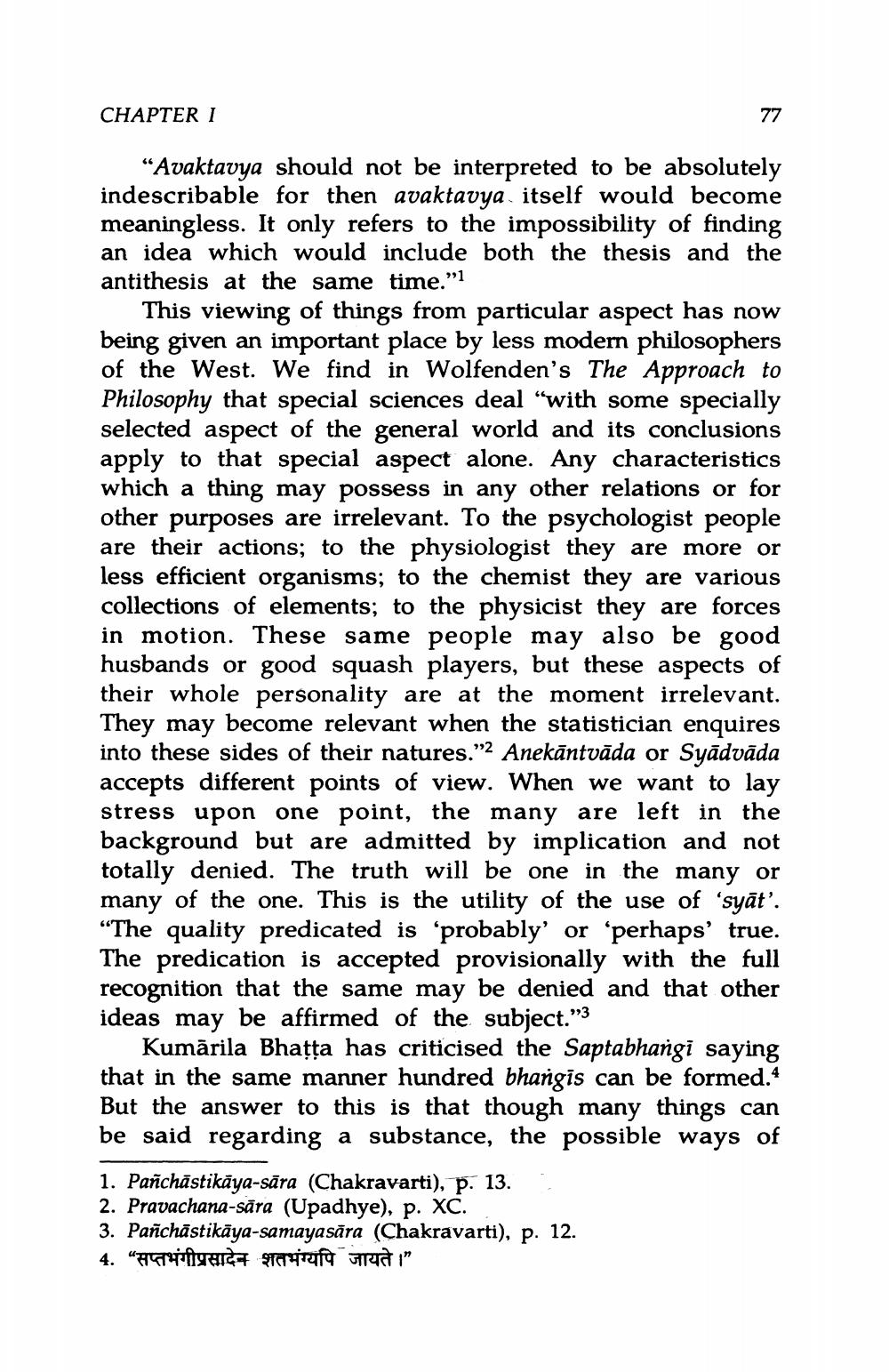________________
CHAPTER 1
77
“Avaktavya should not be interpreted to be absolutely indescribable for then avaktavya itself would become meaningless. It only refers to the impossibility of finding an idea which would include both the thesis and the antithesis at the same time.”
This viewing of things from particular aspect has now being given an important place by less modern philosophers of the West. We find in Wolfenden's The Approach to Philosophy that special sciences deal “with some specially selected aspect of the general world and its conclusions apply to that special aspect alone. Any characteristics which a thing may possess in any other relations or for other purposes are irrelevant. To the psychologist people are their actions; to the physiologist they are more or less efficient organisms; to the chemist they are various collections of elements; to the physicist they are forces in motion. These same people may also be good husbands or good squash players, but these aspects of their whole personality are at the moment irrelevant. They may become relevant when the statistician enquires into these sides of their natures."2 Anekāntvāda or Syādvāda accepts different points of view. When we want to lay stress upon one point, the many are left in the background but are admitted by implication and not totally denied. The truth will be one in the many or many of the one. This is the utility of the use of 'syāt'. "The quality predicated is 'probably' or 'perhaps' true. The predication is accepted provisionally with the full recognition that the same may be denied and that other ideas may be affirmed of the subject."3
Kumārila Bhatta has criticised the Saptabhangi saying that in the same manner hundred bhangis can be formed. But the answer to this is that though many things can be said regarding a substance, the possible ways of 1. Pañchāstikāya-sāra (Chakravarti), p. 13. 2. Pravachana-sāra (Upadhye), p. XC. 3. Pañchāstikāya-samaya sāra (Chakravarti), p. 12. 4. "Tigace starea preci"




